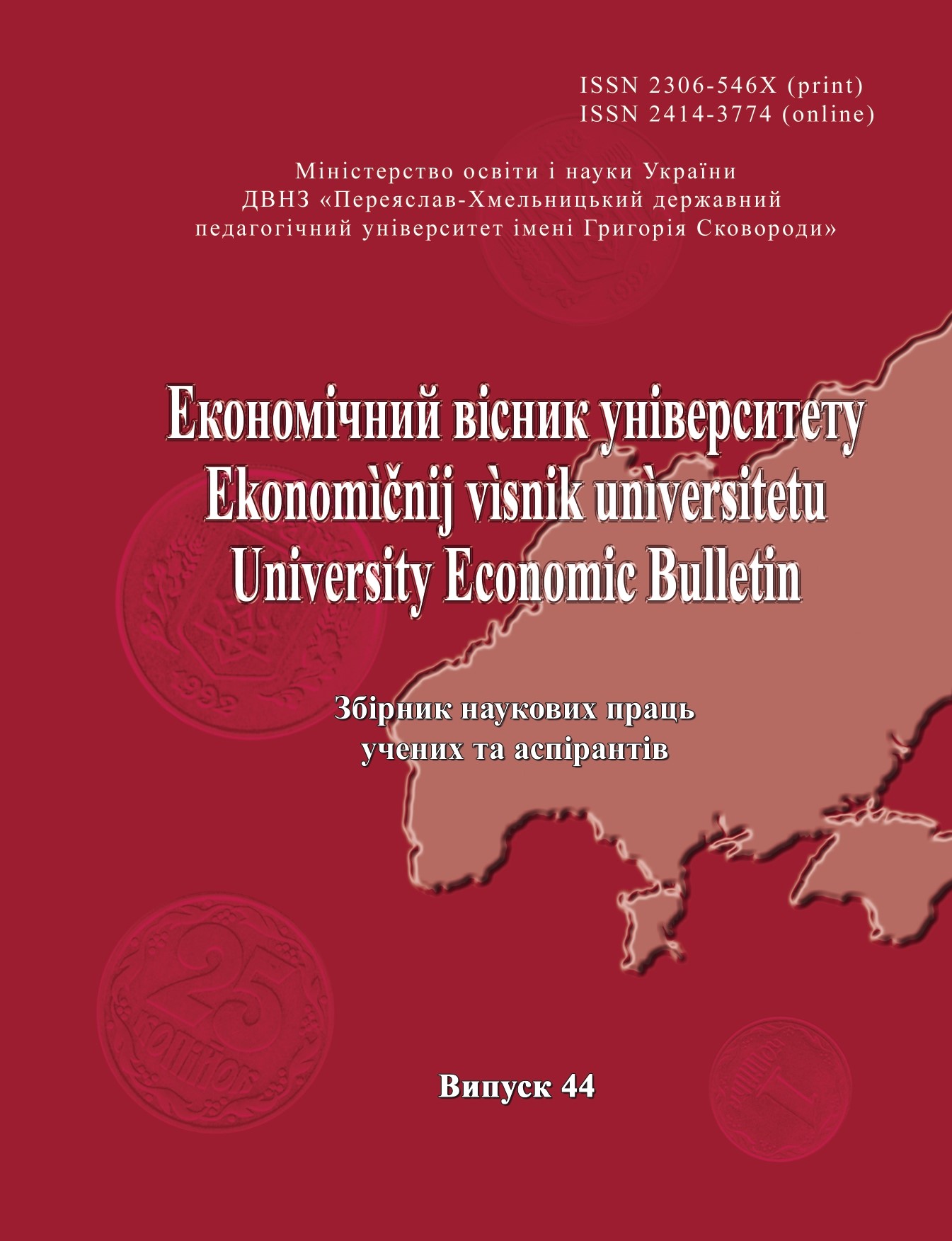Бюджетна політика та економічний розвиток
Fiscal policy and economic development
Author(s): Mykola PasichnyiSubject(s): National Economy, Economic development, Public Finances, Fiscal Politics / Budgeting
Published by: Університет Григорія Сковороди в Переяславі
Keywords: fiscal policy; taxes; budget expenditures; budget deficit; public debt; economic development;
Summary/Abstract: The research subject includes the theoretical basis and mechanisms of fiscal policy formation and realization as an instrument of economic development regulation. The aim of the study is to improve the theoretical and methodological basis of fiscal policy formation and determine the peculiarities of its impact on economic development. Methods. In order to achieve the appropriate tasks, we used a set of methods and approaches, that helped to ensure the conceptual unity of our investigation. The dialectical, systemic and structural approaches, methods of analysis and synthesis, comparison, generalization,economic and mathematical modeling, scientific abstraction are applied. Results. In this paper, we explored the main instruments of fiscal policy, which affect economic development. The experience of advanced counties in fiscal consolidation and stimulus measures during the Great Recession was systemized. Also, the author investigated the budget deficit impact on real GDP growth in OECD countries over the 1981-2017 period. Practical implications. Fiscal policy and instruments of its implementation. Conclusions. The regulation of the tax burden on labor and capital influences the conjuncture of these factors in the market. Fiscal regulation is one of the determining reasons for the migration of labor and financial capital between different regions and countries. Given the multiplicity of combinations of tax bases and rates, the government has significant potential to impact on investment and consumer demand, and real GDP growth. The impact of budget expenditures on aggregate demand should be examined considering the level (ratio to GDP) and different composition structures. It is vital to raise the weight ratio of productive expenditures in the overall structure, which leads to foster economic growth. Particularly important are the special productive expenditures that are directed towards the development of human capital; which include expenditures on education, health care, physical development, R&D. It is crucial to establish a consistent relationship between public spending and the obtained results to form an effective fiscal policy. The budget should be balanced, which requires the implementation of systematic fiscal consolidation measures, and it has been found that the growth of the budget deficit slows down economic growth. The priority of fiscal policy is to reduce the debt burden.
Journal: Економічний вісник університету
- Issue Year: 2020
- Issue No: 44
- Page Range: 153-164
- Page Count: 12
- Language: Ukrainian

